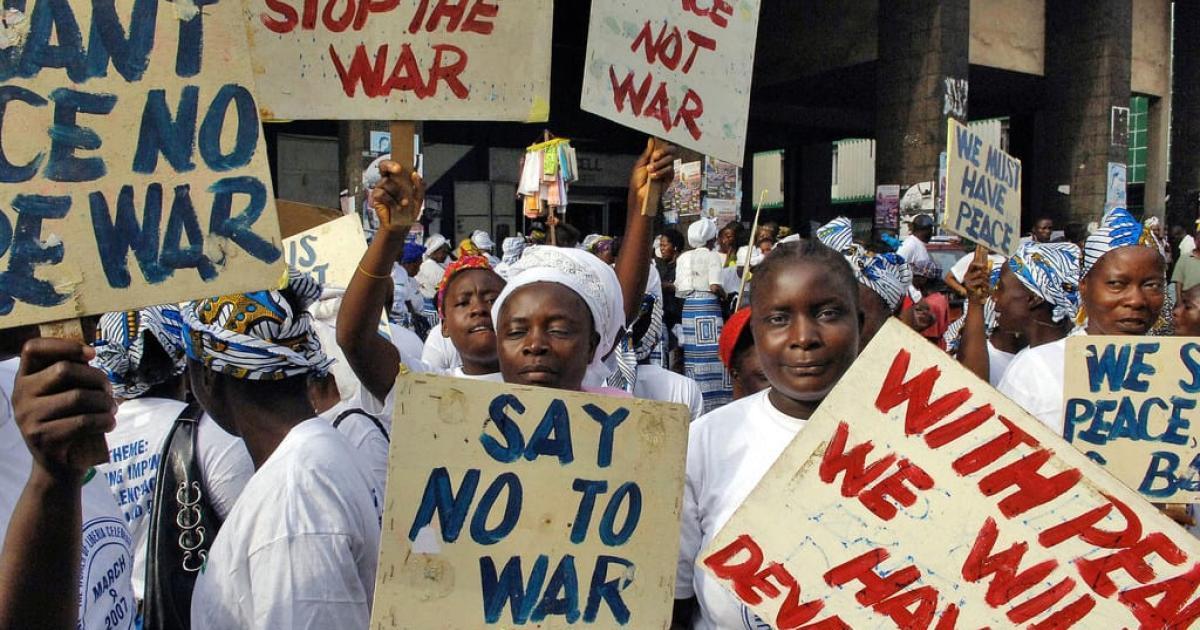By: Lekpele M. Nyamalon
Africa-Press – Liberia. This year is twenty years since the signing of the Accra Comprehensive Peace Agreement that brought an end to the 14-year Liberian civil war and the forced exile of President Charles Taylor. This year is also a major test of our postwar Democracy with the second postwar elections since the end of the civil war. The first was the transition of the government of President Ellen Johnson Sirleaf to former soccer icon, now President George M. Weah. This year, also, looks back at the monumental rise of the women in Peace Building Network, WIPNET, whose mass action for peace, put pressure on the political and war actors of the time to reach a peace deal.
All these milestones point to our collective memory of our journey to peace. We are not fully out of the woods but let’s take a sober reflection down memory lane and tick our boxes: we have achieved Democratic pluralism-thanks to the political activists, student leaders, activist writers like Albert Porte et al, who laid the foundation for the scale of democratic impact we have. We can also tick the box of civil society movements, freedom of the press and the rise of social media that opens the platform for citizen journalism.
Looking back, it has been a mighty long way of false starts, monumental blunders, amateur adventurism, etc. But, it’s been a journey towards a Liberia that we aspire to behold and pass to the generations behind.
One of the monumental missteps of the postwar recovery path was the failure of postwar administrations to address the issues of accountability, war crimes and a comprehensive roadmap to full national healing with clarity of steps that eschew tribalism, regionalism and the vicious cycle that have exploited national fault lines for parochial reasons.
Countries like Rwanda and Sierra Leone for example took decisive steps to purge their individual countries from the shackles of conflict that could potentially set off a relapse. Rwanda, for example discarded the identification of tribes, while Sierra Leone rid itself of the influence of war actors in the governance of the postwar nation.
The full revival of any postwar nation cannot happen in a vacuum, it is deeply rooted in a decisive leadership approach to addressing key issues that threaten social cohesion, national identity and patriotism.
In commemoration of 20 years of peace, I led a group of young Liberians on a historic Bus tour to commemorate the milestone through the lens of History by looking at our socio-political context.
We toured massacre sites, the National Museum, the Fish Market prayer ground that hosted women from the mass action for peace in 2003, the home of President William R. Tolbert Jnr museum in Bentol City and a brief road stopover at the home of President Charles Taylor.
The objective was to take these students, young leaders, activists, civil society actors and the future custodians of our Democracy through the hallowed paths of history, exposing the cracks we had witnessed as country, the dungeons we have sunk, and the triumphs we have won. It was a solemn but deliberate exercise, to evoke, educate and empower through the raw lens of history and to liberate as we forge ahead in protecting the Democracy that has been fought with the blood, sweat, tears and vigor of many before us, who gave everything that this nation would live.
It brings us to a square of time as we pay homage to the lives of Liberians lost in the edifice of the St. Peter’s Lutheran Church, the Duport road massacre, the Phebe Hospital and School of Nursing, the Executive Mansion, the Freeport of Monrovia, the beaches across Monrovia, the PhP beach now called Redemption road, the University of Liberia at Fendell campus and the many mass graves and streets of Monrovia where many lost their lives without graves and memorials. It is a solemn moment to reflect on our journey, tick our boxes, read our scorecards and go beyond the vexing reality that our decision to preserve our hard won peace should not be extinguished on temporary mundane reasons. There is a cause bigger than our individual ambitions and persuasions. As we go towards elections we have to keep our eyes on the ball of tolerance and nonviolence, but without surrender to intimidation, civil mediocrity and resignation.
To paraphrase the Ancient Hymn: “A charge to keep we have” As a friend charged the young participants on the Bus Tour “As we go towards elections what kind of Country do we want?”
Twenty years on, it is our collective hope, that the generation of young Liberians I spoke with on that bus tour become the torch bearers of our Democracy on the foundation of Patriotism, Accountability and live the ideals of the national pledge: One Nation, Indivisible, with liberty and Justice for All.
For More News And Analysis About Liberia Follow Africa-Press






